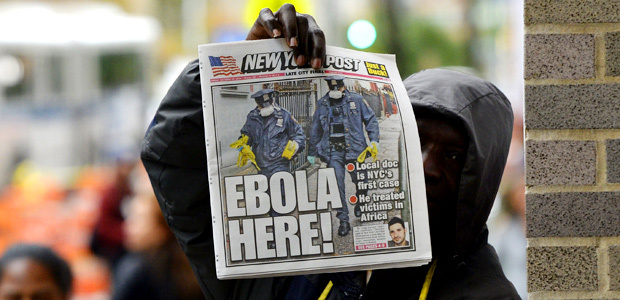
Almost 30 countries around the world are “highly vulnerable” to an Ebola-style epidemic, with Somalia, Chad, Nigeria, Afghanistan and Haiti most at risk, a new report has revealed.
An increasingly mobile global population makes deadly outbreaks more likely, with the emergence of two new diseases a year that can be spread between animals and humans making stronger health systems crucial, according to an investigation by Save the Children.
The charity’s report comes as political and development agency leaders gather in Brussels to discuss the Ebola crisis that has killed nearly 10,000 people and infected almost 24,000 others.
Justin Forsyth, chief executive of Save the Children, said a robust health system could have halted the rapid spread of Ebola through Guinea, Sierra Leone and Liberia over the past year and saved thousands of children’s lives.
He said it was now critical to bolster the health systems of other poor countries so they can deal with any Ebola-style outbreak, control new diseases and save the lives of up to 17,000 children a day who die of preventable diseases such as pneumonia and malaria.
“The world woke up to Ebola but now people need to wake up to the scandal of weak health systems,” Forsyth said in a statement.
To find countries most at risk of an Ebola-style outbreak, the charity compiled an index of the public health systems of the world’s poorest countries based on the number of health workers, government spending on health and mortality rates.
Somalia ranked lowest with the index finding there is one health worker for every 6,711 people compared to one health worker for every 88 people in Britain. In Afghanistan, which was fourth lowest, public spending on health is $10.71 per person a year compared to more than $3,000 in Britain.
The WHO says governments should spend a minimum of $86 per capita on health, but Liberia spends just $19.50, Sierra Leone spends $15.90 and Guinean spends $9 per capita, according to the Save the Children report.
The report said it would cost $1.58 billion to strengthen the health systems of three worst affected West African nations to be able to offer a “minimum package” of essential health services recommended by the WHO, which includes universal health coverage. The international Ebola relief effort has cost almost three times as much.
“Ebola … is a wake-up call that the world can no longer allow any country to continue with dangerously inadequate health services,” said Peter Piot, the director of the London School of Hygiene and Tropical Medicine, in a foreword to the report.
The charity warns that the risk of future multi-country outbreaks of infectious diseases is dangerously high for the global population, with an average of two new zoonotic diseases — those that pass from animal to human — emerging every year.
Globalization and increased air travel have also greatly accelerated the spread of emerging infectious diseases — while it took centuries for smallpox to cross the Atlantic, it only took weeks for SARS to spread to 30 countries on 5 continents when it emerged in 2003. Compounding the risk further is climate change, which has expanded the reach of vector-borne diseases like malaria, Chikungunya, Lyme disease and Dengue fever, and contributed to the spread of water-borne pathogens like cholera.
